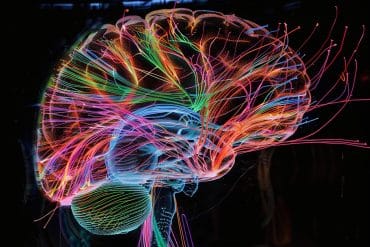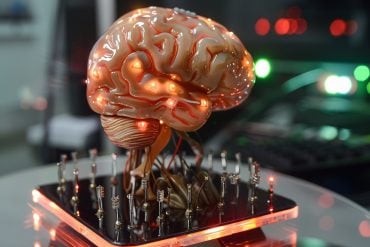St. Jude Children’s Research Hospital study shows computer-based cognitive training is as effective as medication for improving working memory and attention in childhood cancer survivors with cognitive deficits.
Intensive, adaptive computer-based cognitive training presented as a video game helped improve working memory and other cognitive skills of childhood cancer survivors and holds hope for revolutionizing management of the late effects of cancer treatment. St. Jude Children’s Research Hospital investigators led the study, which appears today in the Journal of Clinical Oncology.
Working memory improved significantly, and attention and processing speed also improved for childhood cancer survivors who completed between 20 and 30 computer-based training sessions. Processing speed measures the speed at which the brain processes information. The sessions lasted 30 to 45 minutes and included verbal and visual-spatial exercises presented as games but designed to improve working memory.
The benefits to working memory and attention from the training were comparable to gains reported in previous studies of stimulant medications. The gains from cognitive training moved performance of the 30 survivors who completed the training into the normal range. Caregivers also reported significant improvement in the attention and executive functioning of survivors who completed the training compared to a similar group of survivors who had not. Executive functioning includes skills like planning and focus needed to juggle multiple tasks and get things done.
Changes in brain activity during brain imaging suggest the intervention might capitalize on neuroplasticity to train the brain to work more efficiently.
“These results suggest that computerized cognitive training may help fill a void in management of cognitive late effects that impact quality of life for childhood cancer survivors, such as the likelihood they will complete school and live independently,” said first and corresponding author Heather Conklin, Ph.D., an associate member of the St. Jude Department of Psychology. “While medication and therapist-led interventions have shown some benefit for select survivors, online training marks a significant advance by giving survivors convenient access to an effective intervention.”
Previous research from other investigators showed that individuals with developmental and acquired attention disorders benefited from intensive computer-based cognitive training using repetitive exercises of graded difficulty. This study used a commercially available program called Cogmed and is the largest yet involving cancer survivors. Currently, such programs are not covered by insurance.
This study included 68 childhood cancer survivors who had received cranial irradiation, intrathecal chemotherapy or both for treatment of acute lymphoblastic leukemia (ALL) or brain tumors. Intrathecal chemotherapy involves delivering anti-cancer drugs directly into the cerebrospinal fluid surrounding the brain and spine. The therapies leave survivors at an increased risk for cognitive declines that reduce academic, social and work-related achievement.
Study participants were 8 to 16 years old and had completed treatment and been disease-free for at least one year. Prior to joining the study, all scored below expectations on measures of working memory.
Half the participants were randomly assigned to begin the intervention immediately. The remaining survivors were offered the intervention about six months later. The training included weekly coaching by telephone for survivors and families.
Survivors who began training immediately also underwent functional MRI brain imaging before and soon after completing the intervention. The imaging tracked brain activity as the survivors completed a working memory exercise. Post-intervention imaging showed survivors decreased activity in specific prefrontal regions, which suggests their brains may be working more efficiently.
“That suggests the intervention exercised and strengthened the well-established working memory network. The implication is that the brain may operate more efficiently and have less need for compensatory strategies,” Conklin said. “Such training-induced neuroplasticity suggests the benefits might be sustained going forward.”

Researchers are now studying the possible benefits of starting brain training during treatment or combining it with other interventions. Investigators are also tracking whether the cognitive benefits are sustained and translate into the improved academic performance reported for other populations. In this study, gains in working memory, attention and processing speed did not translate into improved math or reading performance.
Conklin said that overall the results are good news for the nation’s growing population of childhood cancer survivors, now estimated to include more than 420,000 individuals. “Computerized cognitive training is a more feasible, portable and efficient intervention than we’ve had in the past and is likely to result in meaningful improvement in the cognitive problems survivors experience,” she said.
The other authors are Robert Ogg, Jason Ashford, Matthew Scoggins, Ping Zou, Kellie Clark, Karen Martin-Elbahesh, Thomas Merchant, Sima Jeha, Lu Huang and Hui Zhang, all of St. Jude; and Kristina Hardy, of Children’s National Medical Center, Washington D.C.
Funding: The study was funded in part by grants (CA21765) from the National Cancer Institute, part of the National Institutes of Health; the American Cancer Society; and ALSAC.
Source: Frannie Marmorstein – St Jude Children’s Research Hospital
Image Credit: The eye image is in the public domain
Original Research: Abstract for “Computerized Cognitive Training for Amelioration of Cognitive Late Effects Among Childhood Cancer Survivors: A Randomized Controlled Trial” by Heather M. Conklin, Robert J. Ogg, Jason M. Ashford, Matthew A. Scoggins, Ping Zou, Kellie N. Clark, Karen Martin-Elbahesh, Kristina K. Hardy, Thomas E. Merchant, Sima Jeha, Lu Huang, and Hui Zhang in Journal of Clinical Oncology. Published online October 12 2015 doi:10.1200/JCO.2015.61.6672
Abstract
Computerized Cognitive Training for Amelioration of Cognitive Late Effects Among Childhood Cancer Survivors: A Randomized Controlled Trial
Purpose Children receiving CNS-directed therapy for cancer are at risk for cognitive problems, with few available empirically supported interventions. Cognitive problems indicate neurodevelopmental disruption that may be modifiable with intervention. This study evaluated short-term efficacy of a computerized cognitive training program and neural correlates of cognitive change.
Patient and Methods A total of 68 survivors of childhood acute lymphoblastic leukemia (ALL) or brain tumor (BT) with identified cognitive deficits were randomly assigned to computerized cognitive intervention (male, n = 18; female, n = 16; ALL, n = 23; BT, n = 11; mean age ± standard deviation, 12.21 ± 2.47 years) or waitlist (male, n = 18; female, n = 16; ALL, n = 24; BT, n = 10; median age ± standard deviation, 11.82 ± 2.42 years). Intervention participants were asked to complete 25 training sessions at home with weekly, telephone-based coaching. Cognitive assessments and functional magnetic resonance imaging scans (intervention group) were completed pre- and postintervention, with immediate change in spatial span backward as the primary outcome.
Results Survivors completing the intervention (n = 30; 88%) demonstrated greater improvement than controls on measures of working memory (mean ± SEM; eg, Wechsler Intelligence Scale for Children [fourth edition; WISC-IV] spatial span backward, 3.13 ± 0.58 v 0.75 ± 0.43; P = .002; effect size [ES], 0.84), attention (eg, WISC-IV spatial span forward, 3.30 ± 0.71 v 1.25 ± 0.39; P = .01; ES, 0.65), and processing speed (eg, Conners’ Continuous Performance Test hit reaction time, −2.10 ± 1.47 v 2.54 ± 1.25; P = .02; ES, .61) and showed greater reductions in reported executive dysfunction (eg, Conners’ Parent Rating Scale III, −6.73 ± 1.51 v 0.41 ± 1.53; P = .002; ES, 0.84). Functional magnetic resonance imaging revealed significant pre- to post-training reduction in activation of left lateral prefrontal and bilateral medial frontal areas.
Conclusion Study findings show computerized cognitive training is feasible and efficacious for childhood cancer survivors, with evidence for training-related neuroplasticity.
“Computerized Cognitive Training for Amelioration of Cognitive Late Effects Among Childhood Cancer Survivors: A Randomized Controlled Trial” by Heather M. Conklin, Robert J. Ogg, Jason M. Ashford, Matthew A. Scoggins, Ping Zou, Kellie N. Clark, Karen Martin-Elbahesh, Kristina K. Hardy, Thomas E. Merchant, Sima Jeha, Lu Huang, and Hui Zhang in Journal of Clinical Oncology. Published online October 12 2015 doi:10.1200/JCO.2015.61.6672






